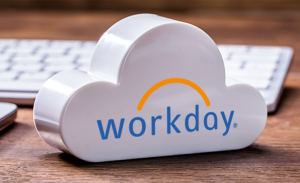Workday provides SaaS-based enterprise solutions for human resources and financial management activities. Since opening its doors in 2005, the San Francisco company has grown to have more than 3,000 customers and 42 million users, with a net retention rate above 100%.
In 2019, the company’s shares gained just 3% in what was deemed a lackluster year, though in January of 2020 things started heating up.
While the global pandemic has caused insurmountable job losses, economic downturn, and loss of morale, Workday has enjoyed an upswing in demand due to its renewed focus on employee engagement and how it can drive a business’s success.
While some may see the current remote work structure as symptomatic of the pandemic, Greg Pryor, Workday’s Senior Vice President of People and Performance, sees this as a fast track towards the future.
In an interview with HCM Technology, Pryor admitted that "what’s happened in the world is that we’ve actually fast-forwarded five years into the future of work, and not just from a remote work perspective.”
Pryor cites that Workday has been striving to make the company a more agile, context-sensitive environment, through initiatives like Feedback Friday. “We pose two or three questions every Friday,” he explains. “And one of the things we had actually discovered, an insight that we had going into this COVID scenario was that actually, the experience of our remote workforce was at least as good, and in fact, in many ways, our remote workforce was having a slightly better experience than our location-based workforce.”
However, Workday is also helping other companies weather the COVID-19 storm.
McMillan Shakespeare Limited (MMS), a provider of salary packaging, novated leasing, asset management, and related financial products and services, employs more than 1,300 people across Australia, New Zealand, and the U.K. When the global health crisis hit, MMS leaned on its investment in Workday, which enabled the MMS HR function to provide vital information to the business in hours rather than weeks.
"If we didn’t have the right tools in place, we wouldn’t have had the level of agility to give our executive team the data they needed to make such rapid workforce decisions — or text people within five minutes to provide them with critical information,” said Suzanne Shepherd, Group Executive Human Resources at MMS. “Now we’re using Workday to detail whether people are standing down or taking annual leave, which is critical to our FTE reporting.”
Throughout the pandemic, Workday has been preaching more than just efficient access to data. It's been keeping employees engaged and supported, something Pryor suggests other companies should also do.
“Capture employee sentiment,” he urges. “[Ask] what’s going on, what insights do we have? We [can] use our technology to distribute dashboards and distribute that insight out to each people leader so they know, across those three areas, how their teams are doing, and they can take action…A new responsibility for senior leaders is to clearly set that tone at the top, to let people know where we’re going, and then have the agility to support people leaders as they make those decisions, which are increasingly local and have local impact.”
























